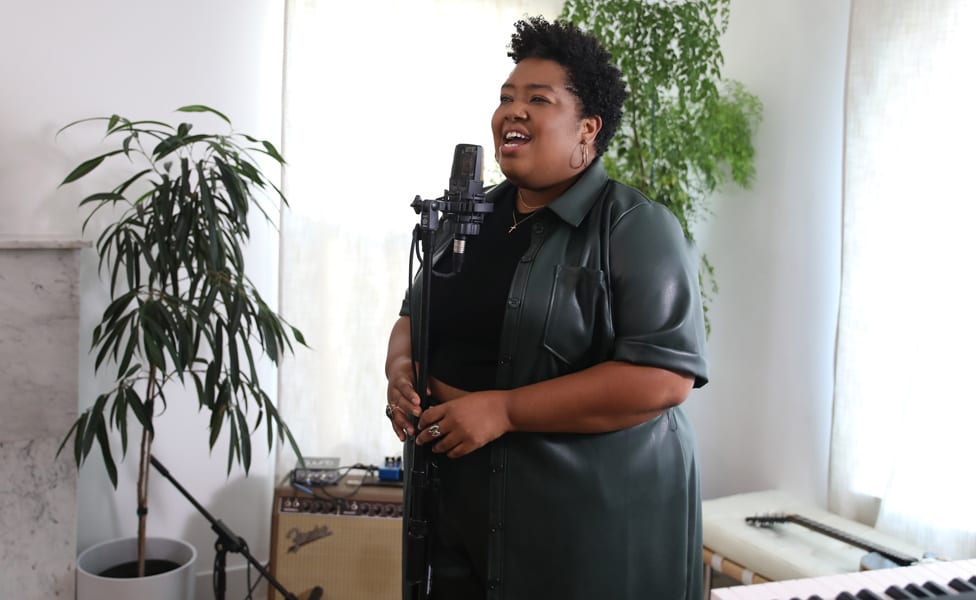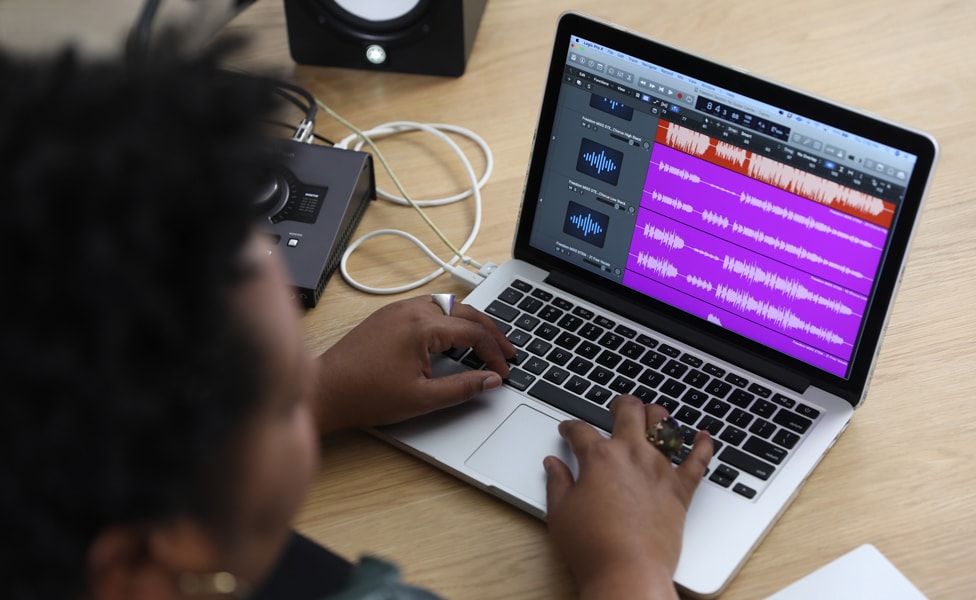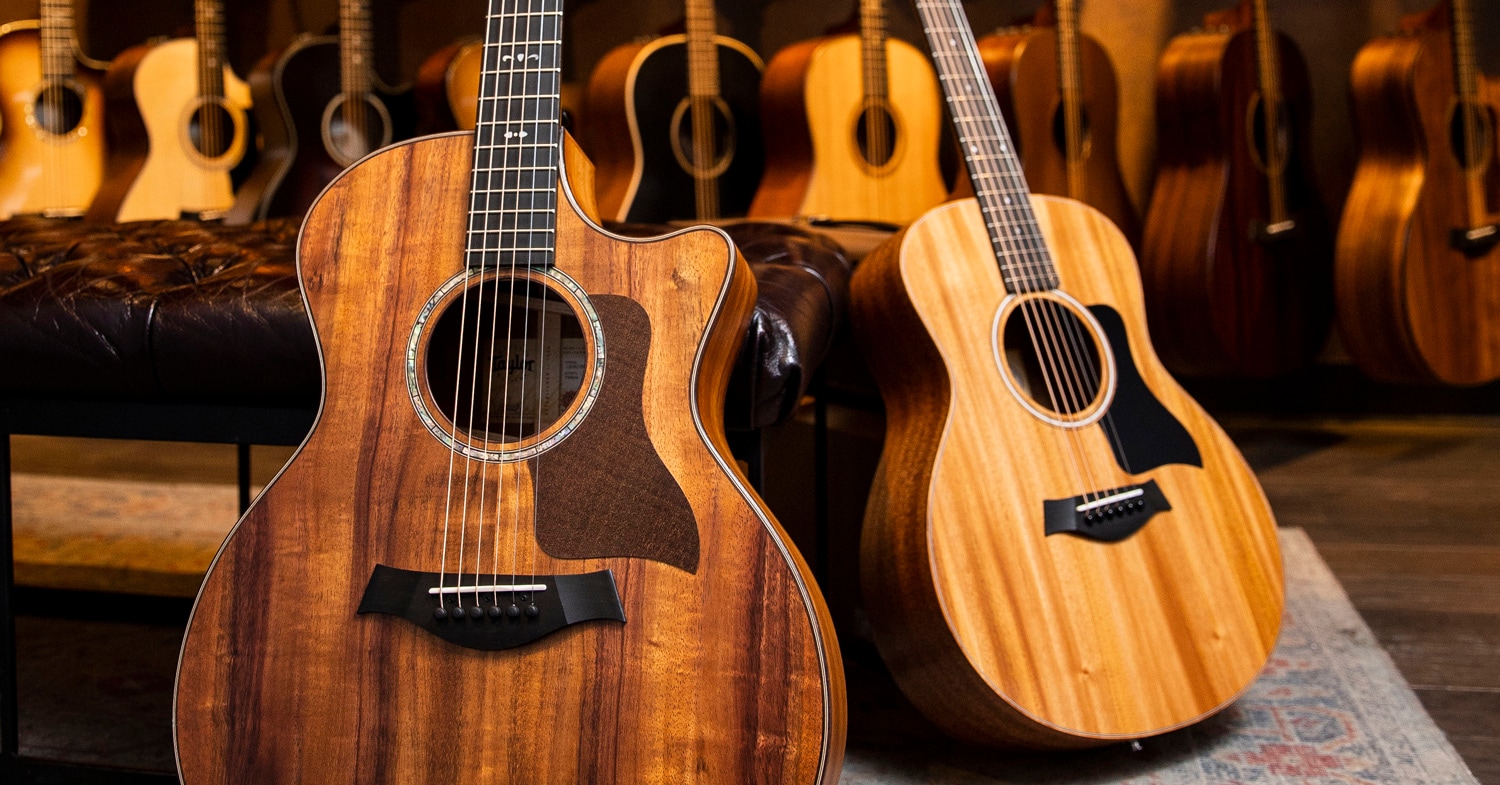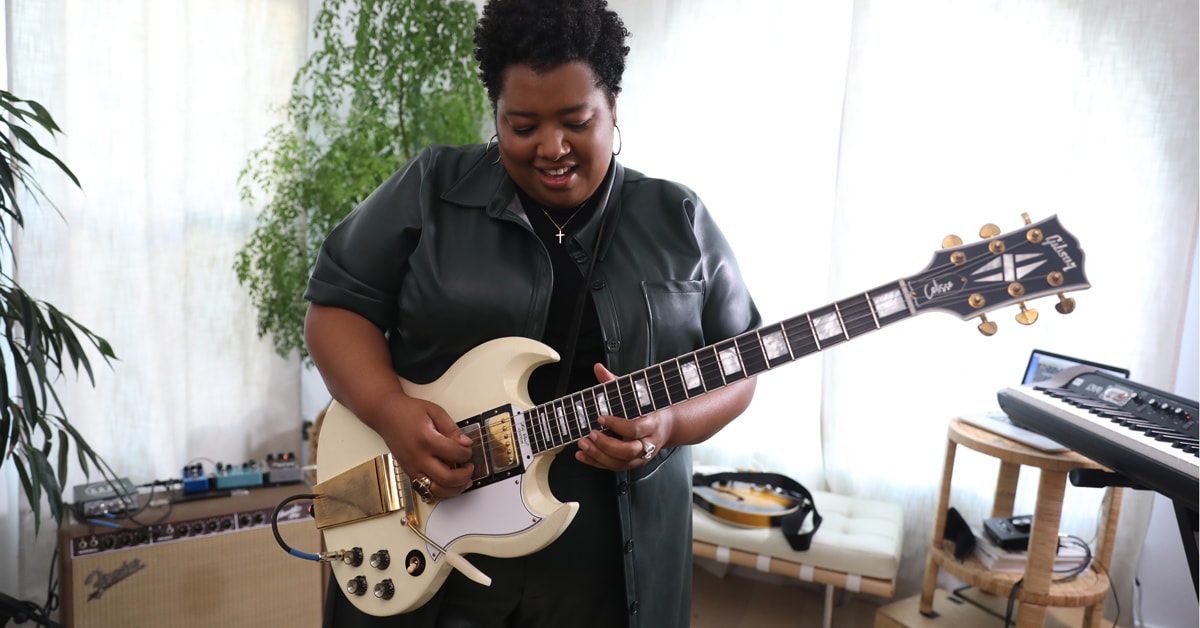You need a lot of hyphens to describe the incredibly talented Celisse: singer-songwriter-multi-instrumentalist-TV performer-Broadway actress-spoken word artist … But if you want to get to the heart of her talent, it’s her body of work as a singer-songwriter and musician that define Celisse the most as an artist. Her songs, propelled by her soulful voice, set to hard-rocking and blues-flavored arrangements, deliver infectious hooks that stay with you. In her conversation with us, Celisse shares her unique approach to crafting and producing a song – specifically “Freedom,” the inspiration behind composing a song so relevant and reflective of our times, and the influence gospel great Sister Rosetta Tharpe had on her guitar playing.
What was the inspiration behind the song, “Freedom?”
This song and the subsequent video project has been in my life for almost four years now. Back in 2016, it was that 10-day period where we lost Philando Castile and Alton Sterling. It was so overwhelming to myself and to so many friends and family around me. I remember being in my apartment and not leaving for a couple of days. I felt like I couldn’t face the world. I felt like I needed to do something. I started on the guitar and started just kind of playing a rhythmic riff and pulled up Logic with no idea of writing a song or doing a video at all. It was like, “I need to get this feeling out.” As I began working on the lyrics, I started thinking, “Well, what can I do with this?” I sent the demo out to friends, and they're like, “this is a thing.” It felt like an opportunity to create a bigger project and bring more people in. It grew into the release of both a single and a video.
Why did you decide to release it when you did?
It's sad that even though these lyrics were written in 2016, they feel just as prevalent now. I worked with incredible director, Tyler Newhouse, who's in charge of all the visuals in the video, and my friend Julia Madison, who did the performance direction. Tom Gardner mixed everything on this track. We started bringing more important people in. And the more it grew, the more it felt like this thing had become so big. It needs a chance to really live, you know?
Then COVID happened, and we're all sitting around in the first months. It felt like the first semester of COVID was just trying to figure out what to do with your time. Then George Floyd, then Breonna Taylor, then Tony McDade, and this uprising happened differently than I've ever seen. In 2016, it felt like there was this support from people but not necessarily action. In 2020, I think fighting these two pandemics, the actual COVID-19 and the pandemic of racism that has wreaked havoc in this country, there was this bubbling up and bubbling over of marches and protests. It just felt like this is the time. This message can speak to people, can speak to peoples' hearts. It gave us a really great opportunity to highlight two incredible organizations: Campaign Zero and the Movement for Black Lives. All of the proceeds that have come from the song have gone to those two organizations. This was the time to do it because people are listening and are ready to act.

Take us through some of the gear you used and your production choices on “Freedom”
The drums are really the center of the track. I tracked the programmed drums on the KORG SV-1. Normally, you'd do drums on a little drum controller, but I didn’t have that. I just wanted to get it done. Playing around in Logic, I got to the Caverns drum kit which is a great sounding drum kit. Then I had a good friend of mine, John Clancy, lay down some acoustic drums on top of that to thicken out the sound. Super different, tonally, right? So, when you put those two together, there's just a textured element that's super nice. Fuller. Rounder. Deeper. That's the central thing in this song.
I think that next to the drums, the next most important thing is a BGV thing. I call them the "Wah-O's." They're through the whole track, and they function as another rhythmic component and a sonic component as well. I love to stack unison vocals because it's a multi-dimensional thing. I love using vocals in this way as another rhythmic tool that pushes us forward and gives us this energy. It's that kind of thing where when the song is over, you still remember. We're just trying to put something into the world that will hopefully inspire people.
For the synths, I used a lot of plug-ins from Logic. The first one you hear is a Moog sample named Siren, which has got this throaty sound. I love that sound because it sounds like multiple synths happening at once. There's a harmonic thing almost. I like stacking octaves because it gives you options. Even if you don't end up using them, it's just a nice texture to have. I used a different synth in that Logic pack, under the name Underwater Synth, and that's an octave down from where we were. It's just another textural pad thing. Some of my favorite synth stuff is in the second verse. I layered in organ sounds from the KORG SV-1. These are all sounds built in Logic. The synths were super fun to play with. And there's no bass. All of the low end is coming from the synth world, which is super fun to do.
Guitars in this track are textural—towards the very end, we get a solo. There are three different guitars stacked. It is an SG. It's a '64 Harmony Rocket and a Fender Strat. For this solo in particular, I re-tracked everything else. I did everything else through the Vibroverb with a couple of effects, a Keeley Electronics Monterey pedal with a great vibe sound, their magnetic echo delay, and then a Menatone Thundering Revival, which is one of my favorite distortions. This was tracked direct into the UA Twin. I had the Menatone Revival and the magnetic echo going. That and Tom Gardner's amazing mixing is the guitar solo.
Tell us about discovering Sister Rosetta Tharpe and her influence on your playing.
I've been hugely inspired by Sister Rosetta Tharpe. First and foremost, I have a tattoo of her on my arm. When I say inspired, it's pretty deep. My first knowing of Sister Rosetta Tharpe was stumbling on to a YouTube video of her playing “Up Above My Head.”
When I just was starting this journey with electric guitar, I was so struck by a couple of things. Number one, it literally looks like my grandmother. It was her all of a sudden reincarnated with this electric guitar. The more I started to learn about this woman, the more I came to realize Sister Rosetta Tharpe is the reason we have rock-and-roll music. I will say as a black woman who plays electric guitar, I'm very aware of the fact that she is literally the shoulders that I stand on. Her two most famous guitars were a late ’50s Les Paul and a 1962 white with gold hardware Les Paul Custom, also known as the SG Custom. I have wanted that guitar since I saw that video of her playing “Up Above My Head.” The Gibson reissue is fantastic because it has all the specs of a ’62. I've made very small adjustments to mine. I changed the frets and everything, but it's just such a great sounding guitar. I've got a lot of guitars I love, but if the question is what guitar is gonna make it happen no matter what the gig, it's the SG. It is resonant. The notes go on forever. The neck is super balanced. Just the bridge pickup is warm but still punchy. It is just a great guitar.
How did you land on the Vibroverb?
I love the '63 Vibroverb. I don't know if there's a more luscious sounding reverb in a combo amp. It is such a beautiful, warm sound, and the great thing about that amp, is it's so versatile. You can turn the bass up to four, five, treble at noon, and just a touch between one and two of reverb, and it's beautiful, sort of jazz, blues, mellow tone. Or you can go to the normal side and crank the volume, and it's a rock-and-roll machine. It's so flexible. There's something extra that's special and a little different in the EQ enough to where I think it's a great amp.
How would you say the pandemic has made you rethink or reinvent your ideas behind collaborating and performing?
It took away my entire performance calendar for a year, like everybody else, right? Touring and all that stuff and intentional travel is gone. So everything we're doing is remote. It just all of a sudden made me sort of go, you know what, what if I take whatever ideas I've assigned, whatever rules I've assigned to what collaboration needs to look like out the door, because everything is different right now. And what if I just started saying yes? Okay, you know what, you want to write this song together? You want to try to do it on Zoom? Let's do it. Honestly, we don't need to release it but let me produce that thing for you. Let's just play around and see, and it has made me, realize how many new different things there are that I'm like, whoa, here's a new way to think about it. I bought an Akai MPD218, the drum pad. It's not a deep piece of gear, and it's been the programming drums thing. I've always been like, “That's cool. I'll get into that at some point.” But I thought I'll just buy this now. I was working on a particular project that seemed like I needed it. It has truly blown my mind. I could just go into Logic with this and the drum designer and be here for literally months. I think the pandemic, in its limitations, has actually opened up a lot more possibility than I was ready for before.

Why do you think music is important and essential?
Music is so important to our sense of humanity and sense of self because it offers all of us a gateway into our feelings and experiences. It's the reason why a song can come on the radio, and you can immediately be taken back 5 years, 10 years, 15 years, to the moment in which you heard that song. I've heard songs recently, and I'm like “Oh my God! Middle school.”
I think music is bipartisan. No matter where you come from it connects us all. Hearing a certain lyric or a certain message in a song might change somebody's perspective on something, and that perspective might be the opening to moving differently in the world.
Can you describe what you think the role of music is in perilous times?
Music is a place where you can go and you know you're safe. You have access to the whole world, especially at a time where we've all been limited in our travel. I can go and find an incredible tabla player from India on Apple Music or Spotify. I can then go—I'm really wishing I could go to Nashville right now and I could go hunt some live concert from the Blue Bird. It gives you the ability to be anywhere you want in the world right from your home, which I think has been a saving grace for me during these times.
How do you think others can become uniquely inspired in this moment to embrace music?
By challenging yourself to pick up that instrument. You've always said you wanted to play but you don’t have time. None of us have that excuse right now. Even though we're all back at work in whatever ways we are, there's still this opening of time because we're not commuting. We don't have to go anywhere, most of us, right? I would encourage people to just try. Give yourself 30 days. See if you can find a teacher online, some lesson package. In a month, you might be able to play songs that make you feel really good.
What do you hope others will be encouraged by from your experience and your story as a musician?
I hope that people would be encouraged by a willingness to continue to investigate all of the color and nuance that's available to us in music. I would hope people would be inspired by my need to speak to the times with the music that I write. It feels like a duty for me as an artist, and I answer the call gladly.
I make music because I have to. I need to. Music has been the most important thing in my life for as long as I can remember. Without music, I don’t think I would be as joyful, as peaceful or as generous a person.
Keep up with Celisse on Instagram.
.jpeg)







